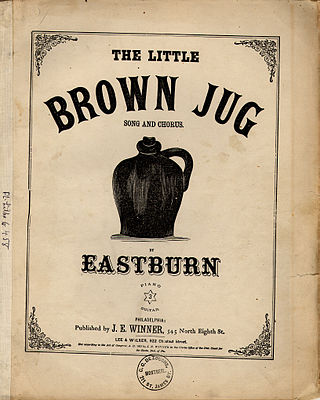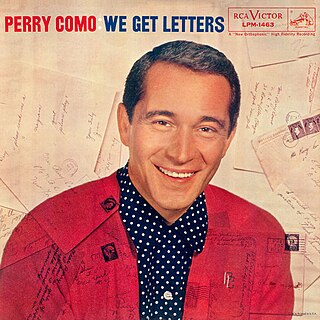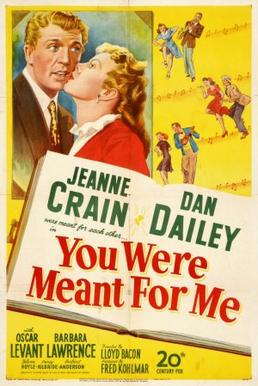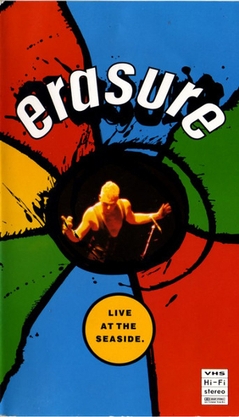Related Research Articles

Andy Razaf was an American poet, composer, and lyricist of such well-known songs as "Ain't Misbehavin'" and "Honeysuckle Rose".

"In the Mood" is a popular big band-era jazz standard recorded by American bandleader Glenn Miller. "In the Mood" is based on the composition "Tar Paper Stomp" by Wingy Manone. The first recording under the name "In the Mood" was released by Edgar Hayes & His Orchestra in 1938.

Wonga Philip Harris was an American actor, comedian, singer and songwriter. He was an orchestra leader and a pioneer in radio situation comedy, first with The Jack Benny Program, then in The Phil Harris-Alice Faye Show in which he co-starred with his wife, singer-actress Alice Faye, for eight years. Harris is also noted for his voice acting in animated films. As a voice actor, he played Baloo in The Jungle Book (1967), Thomas O'Malley in The Aristocats (1970), Little John in Robin Hood (1973), and Patou in Rock-a-Doodle (1991). As a singer, he recorded a #1 novelty hit record, "The Thing" (1950).

"Little Brown Jug" is a song written in 1869 by Joseph Eastburn Winner, originally published in Philadelphia with the author listed as Winner's middle name "Eastburn".
"I've Grown Accustomed to Her Face" is a song from the 1956 musical My Fair Lady, with music by Frederick Loewe and lyrics by Alan Jay Lerner. It was originally performed by Rex Harrison as Professor Henry Higgins who also performed it in the 1964 film version.

We Get Letters is a 1957 album by Perry Como, his second RCA Victor 12" long-play album. The LP's concept is an album of requests from Como's television show, but forgoing the usual big-band sound of Mitchell Ayres' Orchestra and the Ray Charles Singers for a small group known as "Como's little Combo", with soft, breezy jazz arrangements by Joe Lipman. The album was recorded between June 1956 and February 1957.

"Tie Me Kangaroo Down, Sport" is a song written by Australian singer Rolf Harris in 1957 which became a hit around the world in the 1960s in two recordings. Inspired by Harry Belafonte's calypsos, most noticeably "The Jack-Ass Song", it is about an Australian stockman on his deathbed.

"The Look of Love" is a popular song composed by Burt Bacharach and Hal David and originally popularized by English pop singer Dusty Springfield. The song is notable for its sensuality and its relaxed bossa nova rhythm. The song was featured in an extended slow-motion interlude to the 1967 spoof James Bond film Casino Royale. In 2008, the song was inducted into the Grammy Hall of Fame. It also received a Best Song nomination at the 1968 Academy Awards. The song partially inspired the film Austin Powers: International Man of Mystery (1997).

"I Can't Give You Anything but Love, Baby" is an American popular song and jazz standard by Jimmy McHugh (music) and Dorothy Fields (lyrics). The song was introduced by Adelaide Hall at Les Ambassadeurs Club in New York in January 1928 in Lew Leslie's Blackbird Revue, which opened on Broadway later that year as the highly successful Blackbirds of 1928, wherein it was performed by Adelaide Hall, Aida Ward, and Willard McLean.

In Another Land is a studio album recorded by Larry Norman and released in 1976. It is the third album in Norman's "trilogy", which began with Only Visiting This Planet and continued with So Long Ago the Garden. The album contains some of Norman's most well-known work.

You Were Meant for Me is a 1948 musical film directed by Lloyd Bacon and starring Dan Dailey and Jeanne Crain as a bandleader and his wife. It was released by 20th Century Fox. The film includes performances of "You Were Meant for Me", "I'll Get By ", and "Ain't Misbehavin'".

Killer Diller is a 1948 American musical comedy race film directed by Josh Binney and released by All American. Academic and comedienne Eddie Tafoya wrote that "Killer Diller is really more concerned with showcasing black talent appearing at Harlem's legendary Apollo Theater than it is with providing audiences with a satisfying story." The movie features The Clark Brothers, Nat King Cole, Moms Mabley, Dusty Fletcher, Butterfly McQueen, the Andy Kirk Orchestra and the Four Congaroos. René J. Hall was the film's arranger.
"Down in the Valley", also known as "Birmingham Jail", is a traditional American folk song. It has been recorded by many artists and is included in the Songs of Expanding America recordings in Burl Ives' six-album set Historical America in Song.

"Love Conquers All" is a single by new wave group ABC, released as the lead single from their sixth studio album Abracadabra in July 1991.

Swing jazz emerged as a dominant form in American music, in which some virtuoso soloists became as famous as the band leaders. Key figures in developing the "big" jazz band included bandleaders and arrangers Count Basie, Cab Calloway, Jimmy and Tommy Dorsey, Duke Ellington, Benny Goodman, Fletcher Henderson, Earl Hines, Glenn Miller, and Artie Shaw. Duke Ellington and his band members composed numerous swing era hits that have become standards: "It Don't Mean a Thing " (1932), "Sophisticated Lady" (1933) and "Caravan" (1936), among others. Other influential bandleaders of this period were Benny Goodman and Count Basie.

The period from the end of the First World War until the start of the Depression in 1929 is known as the "Jazz Age". Jazz had become popular music in America, although older generations considered the music immoral and threatening to cultural values. Dances such as the Charleston and the Black Bottom were very popular during the period, and jazz bands typically consisted of seven to twelve musicians. Important orchestras in New York were led by Fletcher Henderson, Paul Whiteman and Duke Ellington. Many New Orleans jazzmen had moved to Chicago during the late 1910s in search of employment; among others, the New Orleans Rhythm Kings, King Oliver's Creole Jazz Band and Jelly Roll Morton recorded in the city. However, Chicago's importance as a center of jazz music started to diminish toward the end of the 1920s in favor of New York.

Live at the Seaside is the first concert video release by English synth-pop duo Erasure, recorded at the Brighton Dome on 17 April 1987 by the BBC as part of the duo's tour of their second studio album The Circus. The video, originally only available on VHS, features 13 tracks from the concert and, amongst tracks from The Circus, includes performances of songs from Erasure's first album Wonderland plus "Gimme! Gimme! Gimme!", the band's first foray into ABBA cover versions.
"I'll Close My Eyes", first published in 1945, is a song written and composed by the English songwriter and bandleader Billy Reid. This song is usually performed with altered lyrics by the American songwriter Buddy Kaye. The song has become a jazz standard.
"Finding You" is a song by Australian indie group The Go-Betweens that was released as the second single from their ninth studio album Oceans Apart. It was released as a promotional CD single on the LO-MAX Records label in the United Kingdom in July 2005 and by Tuition Records in Germany on 25 July 2015.
References
- ↑ "Phil Harris, Comic, Bandleader". The Press-Enterprise. Riverside, California. August 13, 1995. p. B5.
- ↑ "That's What I Like About the South Lyrics". Phil Harris - That's What I Like About the South Lyrics. Genius Lyrics. Retrieved 4 August 2021.